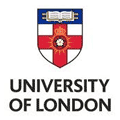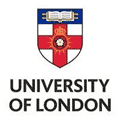Universities in The United Kingdom

Abacus College

Aberdeen Business School, Robert Gordon University

Anglia Ruskin University

Bournemouth University

Cardiff University

Cass Business School, City University London

Cranfield University

ESCP Europe, Campus London

Glasgow Caledonian University

Heriot-Watt University, Edinburgh

Imperial College London

King's College London

London Metropolitan University

London South Bank University

Middlesex University Trent Park

Regent's University London

Richmond University, The American International University In London

The City College

The University of Edinburgh

The University of Manchester

The University of Sheffield

The University of Warwick

University College London

University of Aberdeen

University of Bristol

University of Central Lancashire

University of Gloucestershire

University of Kent

University of Leicester

University of London

University of London External System

University of Northumbria at Newcastle

University of Oxford

University of Southampton

University of Sunderland

University of Surrey

University of Westminster

University of Wolverhampton

University of Worcester
Warnborough College (UK)

West Thames College
Universities in The United Kingdom by City:
AberdeenBirminghamBradfordBrightonBristolCambridgeCanterburyCardiffChelmsfordCheltenhamChester RoadColchesterCoventryCranfieldDundeeEdinburghEghamFalmerFern BarrowGlasgowGraysGuildfordHenwick GroveHeslingtonHullIsleworthKingston upon ThamesLancasterLeicesterLiverpoolLondonManchesterNewcastle upon TyneNorthamptonNorwichOxfordPrestonRichmond-upon-ThamesSheffieldSouthamptonSt AndrewsStirlingSwanseaTrentWalesWolverhamptonWorcesterYorkAbout universities in The United Kingdom
Higher education is a major priority in the United Kingdom, a fact that is reflected in its many universities that are consistently ranked among the world’s best. There are several different types of higher education institutions in the United Kingdom, including comprehensive colleges and universities; as well as institutes and academies that tend to focus on a narrower range of study areas, such as technology, vocational studies, or the engineering sciences.
As a member state of the European Union, the United Kingdom has recently restructured its credit and degree system in accordance with the Bologna Process that began in the late 1990s. The aim of this educational reform measure was to homogenize the credit and degree structure at all universities throughout the European Union, with the goal of facilitating student transfer between universities across Europe. Under this new system, the colleges and universities in the United Kingdom (and across the EU) have adopted the European Credit and Transfer System, or ECTS. This system assigns 60 credits to one academic year; 180 credits to earn an academic bachelor degree; and an additional 120 credits to earn a Master Degree.
Like the United States, the colleges, universities and other institutions in the United Kingdom essentially have three degree levels: the Bachelor Degree, Master’s Degree and Doctorate or PhD Degree.
Bachelor Degrees
Undergraduate or bachelor degrees in the United Kingdom are offered at both colleges and universities in a wide range of program areas and categories, including arts and humanities; health sciences; physical or applied sciences, social science; and engineering and technology.
Most bachelor degree programs in the United Kingdom span three years, in accordance with the Bologna Process. These “academic” bachelor degrees require the successful completion of 180 ECTS credits, or 60 credits per academic year. Although no formal degree is conferred to students who complete this type of bachelor degree program, it does qualify them to pursue graduate studies in the same subject area or one that is closely related. Students pursuing an academic bachelor can either study the general or basic degree program, or choose to study for an honour’s bachelor degree, which includes more advanced subject matter.
Students not interested in earning a Master’s degree can instead complete the “professional” bachelor degree, a four-year, 240 credit program that results in the awarding of a formal degree, usually in a professional field, that enables them to pursue entry-level employment in their chosen field of study.
To qualify for undergraduate admission into one of the United Kingdom’s institutions of higher learning, students must submit an application—at least one year in advance—to the Universities and Colleges Admission Service (UCAS), a centralized body that handles the applications for most higher education institutions throughout the country. Once a student is approved for general admission by the UCAS, a decision which is predicated on the results of their A-level or O-level examinations, they can then apply to the college or university of their choosing.
Master’s Degree
To qualify for admission into the Master’s or graduate-level program, students must possess a bachelor degree or its equivalent. Naturally, students who possess an honour’s bachelor degree are much more likely to be accepted than those who studied in the general program. Most graduate programs in the United Kingdom now span a total of two years in duration, the equivalent of 120 ECTS credits. Others can range from one to three years depending on the type of Master’s degree and the subject matter.
There are essentially two types of Master’s Degrees in the United Kingdom: the standard Master’s Degree and the Master of Philosophy. The standard Master’s Degree can range from one to two years, and normally includes a combination of classroom-based courses and applied research. The Master of Philosophy, on the other hand, typically spans 2-3 years, and is mainly a research-based program, with little classroom study. Both types of Master’s degrees require the completion of a thesis, project or comprehensive examination.
Doctorate Programs
Doctoral programs in the United Kingdom are typically reserved for the “best and the brightest”— exceptional students who wish to continue their studies in a given field after earning their Master’s degree. These programs generally span 3-5 years depending on the subject and the student. They are heavily geared towards research and fieldwork. Prior to being awarded their degree, students must develop and defend an original dissertation or thesis.

